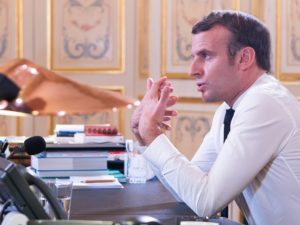Letter from La Vigie, dated 20 Sept. 2023

Ambient disaster
The ideologies of the twentieth century, communism and liberalism, have lost their hold on society. For twenty years, the world has witnessed the return of religion as a geopolitical factor, but two catastrophisms – ecological and demographic – have now become replacement ideologies. We need to move beyond them.
To read the article click here
If there’s only one left, it’s IndoPac
For several months, if not years, France’s foreign policy has suffered from a notable lack of clarity in its latest qualification as a “trusted partner power”. Its long-standing partners are taking advantage of this to bully Paris and subject it to historic affronts. Because we have to exist on the international stage, the only thing left is the Indo-Pacific, which we are boosting in the hope that our new partners will have confidence in us.
To read the article click here
Lorgnette: from Korea to Armenia
President Putin welcomed Kim Jong Un, the President of North Korea, with great pomp and ceremony. Kim Jong Un is not accustomed to being received in this way, as his country has opted for long-term strategic isolation. The Korean peninsula is not at peace, since only an armistice was signed in 1953, and since then Pyongyang has maintained a considerable military effort, to the point of developing nuclear weapons, ballistic missiles and possibly a missile-launching submarine. The advantage of military dictatorships is that they have stockpiles. Korea is said to be supplying Russia with 10 million shells to maintain its RAPFEU in Ukraine. You have the allies you can get.
That’s what Armenia told itself when, in 2020, it was unable to resist the Azerbaijani offensive. Russia did just enough to prevent things going too far (LV 151, 154 and 184) and moved on. So its troops went to Ukraine and are still there. From then on, the CSTO, which organised the “near abroad”, lost its strength and Armenia announced that it was organising military exercises with the United States. Moscow is no longer able to guarantee wider security and is losing its most traditional supporters. Azerbaijan is taking advantage. Russia is letting it happen…
Subscribers: click directly on the links to read online or download the pdf issue (here), always with your login/password. New readers: read the article by issue, by clicking on each article (€2.5), or subscribe (discovery subscription €17, annual subscription €70, orga. subscription €300 excl. tax): here, the different options.
JONVP



